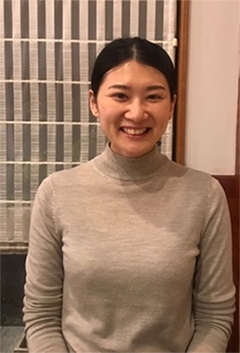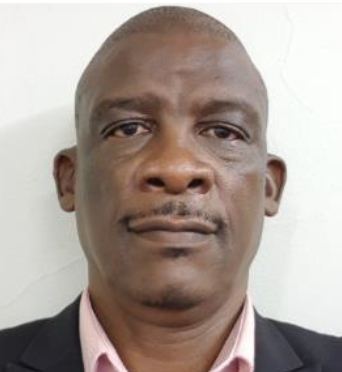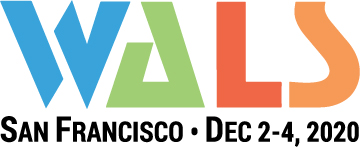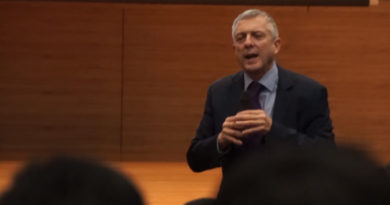Newsletter | March 2020
| Dear WALS member,
We hope all WALS members are keeping safe during the Corona pandemic. Keep washing those hands. We wish everyone all the best at this worrying time. But don’t forget to book your place at the San Francisco WALS 2020 Conference. All indicators are that the virus will be long past its peak by December and it is certainly a not-to-be-missed conference as you will see from the WALS 2020 call for papers of this WALS news. Featured is the first of a new WALS News regular item which we hope will appear in each newsletter. This provides a platform for members of the WALS early career and PhD researchers to share their work and research in progress. There is a new update from Rongjin Huang on a trans-national comparative lesson study between schools in the Shanghai and the UK. The idea is based on a project that Stéphane Clivas and Takeshi Miyakawa carried out in 2018 between Switzerland and Japan and involves simultaneous comparison of a mathematics lesson with the ‘same’ intended outcomes in each country. Another new WALS news feature appearing in this edition is a ‘Global Focus’ article focusing on the development of lesson study around the world. In this initial article, David Sekao outlines the lesson study programme now operating at the University of Pretoria, South Africa. Finally, I give a ‘heads up’ about the forthcoming first interview in a new WALS “Leaders in Lesson Study archive series. Pete Dudley |
||||||||||
|
Shanghai-UK Lesson Study Project
An exciting East/West Lesson Study project describedby WALS Council Member Dr. Rongjin HuangThe Shanghai-UK mathematics teacher exchange project has helped deepen the understanding of mathematical and didactical knowledge of more than 900 teachers from Shanghai and the UK since 2014. Building on this project, the Shanghai-UK lesson study (LS) project led by experts from Shanghai, the USA and the UK began in 2019. The goals of this project include (1) deepening understanding of teachers’ learning through LS (Japanese LS in UK vs. Chinese LS in Shanghai); (2) maximizing teacher learning through a cross-cultural comparison of LS approaches. Focusing on a challenging topic of fractions on a number line, each LS team develops a research lesson using their own LS approach (phase 1). Then, the two video-taped research lessons will be reviewed and commented on by internationally recognized, external LS experts and these lessons with comments will be shared with both LS teams (Phase 2). Finally, each LS team will conduct a second round of LS on the same topic and these second research lessons will be compared within each team and across cultures (Phase 3). The initial results will be shared at ICME 14 in Shanghai and the second phase results are expected to be shared in December at WALS 2020 in the USA. Shanghai team leaders: |
||||||||||
|
PhD Students and Young Researchers
In each WALS newsletter we will focus on the research of one member of the PhD students/early career researchers’ network, and in this first article we learn about the work of: My research interests include the dynamics of classroom discourse, particularly in the whole- classroom discussion. Although classroom discussion is a useful method to cultivate students, the “sphere” of the discussion itself is significant as it involves diversity and uncertainty. Participation in a classroom discussion requires students to convey their ideas despite the presence of different perspectives and values in the classroom. Students may encounter unforeseen and conflicting opinions. With that, the classroom could be regarded as a community in which one learns how to arrive at a solution or compromise cooperatively. My research area focuses on this aspect of the classroom by viewing it as a public sphere and to (re)explore its educational possibility. In my analysis, I employed the approach of the transcript-based lesson analysis (TBLA) with steps as follows:
Presently, I have analysed a social studies lesson (2nd grade, Junior High School) where the classroom discussion revolved around the topic of Japanese agriculture. To identify the features of this discussion, I have chosen 25 keywords from the transcript (e.g. farmer, money) and created several graphs that illustrate the presence, absence and frequencies of the keywords. Results suggested that certain keywords were used throughout the discussion while others were only used in particular parts of the discussion. It could be inferred that students were constantly and critically examining each other’s opinions by taking into account multiple perspectives that existed in the discussion.
A closed Facebook group of PhD Students and Young Researchers, moderated by Stéphane Clivaz, Sui Lin Goei, Tijmen Schipper and Shirley Tan, was initiated in November 2019. This group is accessible to PhD students/young researchers who are registered on the WALS Lesson Study Doctoral Students database. The goal of the group is to create a global lesson study community of PhD students and young researchers who will support and inspire one another by providing a platform for networking, collaboration and perhaps, career development. With 41 members in the group currently, there are discussions between the members about their research related to lesson studies. Apart from that, members are also sharing news on events and useful resources related to lesson studies. We are looking forward to more new members, sharing and lively discussions in the group. If you have not joined us, please find us at “WALS PhD Students and Young Researchers” Facebook group. By Stéphane Clivaz, Sui Lin Goei, Tijmen Schipper, Shirley Tan |
||||||||||
|
Lesson Study at the University of Pretoria, South Africa
At each WALS conference there are more and more countries represented, and currently all but one continent (Antarctica) have WALS members. In this article we find out more about the introduction and development of Lesson Study in Africa, with grateful thanks to Dr. David Sekao from the University of Pretoria.
My first encounter with the Lesson Study (LS) was through the training in Japan, courtesy of the Japanese International Cooperation Agency (JICA), at Miyagi University of Education and later at Naruto University of Education (NUE). LS at the University of Pretoria (UP) covers five areas as presented in Fig 1. Unlike the other four areas that take place in campus, Continuous Teacher Development is aimed at supporting teachers as part of the university’s social responsibility programme. This is made possible by the collaboration forged with the national Department of Basic Education (DBE). Through this collaboration Lesson Study research project schools have recently been identified in one education district.
Following the adaptation of LS, a 5-stage model (Fig 2) was conceptualised, starting with its unique feature, Diagnostic analysis, to identify problematic topics/concepts. This model is being implemented by the DBE and UP. Although LS is part of Mathematics methodology (Fig 3), we are currently exploring using it in the teaching practice among the 4th Year students. Recently Prof. Yumiko Ono from NUE visited UP for knowledge sharing to strengthen the effective implementation of the LS at UP (Fig 4).
|
||||||||||
|
Leaders in Lesson Study: A WALS Web Archive In the new ‘Leaders in Lesson Study’ series, WALS council member Aoibhinn Ní Shúilleabháin will interview leading figures in Lesson Study and in the process build a video archive for future reference and research. The first interview represents a double acknowledgement of the work of former WALS president Professor John Elliott. It is ‘double’ because John has been invited by the University of Cambridge to give a ‘Leadership for Learning: eight educational reads’ live lecture at the Faculty of Education on 20 May to talk about his life and work in education, action research and lesson studies. Aiobhinn, who hosts the series, will interview John before he then reveals to a live audience the eight educational ‘reads’ that have influenced him the most in his long career. This interview will be a resource for WALS members as well as for the Faculty in Cambridge. More information about how to access this interview and talk will be available on the WALS website. It is hoped that the proceedings can be livestreamed to WALS members. |
||||||||||
|
WALS 2020 Conference from 2 – 4 December, 2020
Call for Proposals Now Open!Our conference theme Elevating Study Equity Through Effective, Research-based Lesson Study will provide an arena for educators from around the world to share their thinking and work around Issues of Equity, Effective Lesson Study Practice and The Role of Research. The conference will include a variety of session types designed to support contribution and learning by educators and researchers across the pre-kindergarten through post-secondary spectrum. We are currently seeking proposal submissions for:
We invite you and/or your team to submit a proposal in a session type that matches your work. Visit our website to see full details about session types. There will be two rounds for proposal submissions:
Early Bird RegistrationRegistration is now open with an early bird special rate until May 15th. We encourage you to book early to reserve a spot on our limited availability add-on experiences. Learn more about these innovating and exciting experiences here. Lesson Study in the Community making a big impact!John Muir Elementary, in San Francisco Unified School District, began its school-wide lesson study journey in 2015, and has been recognized by SFUSD for extraordinary achievement growth in Language Arts and Mathematics for each of the past 3 years. Find out how Muir educators have demonstrated unusual success in overcoming the achievement gap–work at the heart of this year’s WALS theme of elevating student equity through effective lesson study. Several conference sessions (open to all) feature the work of Muir educators, and the school will host a pre-conference site visit-research lesson (spaces on first come first-serve basis, special registration required). Press coverage from the SF Examiner and SFUSD celebrate Muir’s extraordinary success with historically underserved students. Visit www.walsnet.org/2020 Twitter: @WALSConference |


 Welcome to this first 2020 WALS newsletter.
Welcome to this first 2020 WALS newsletter.









